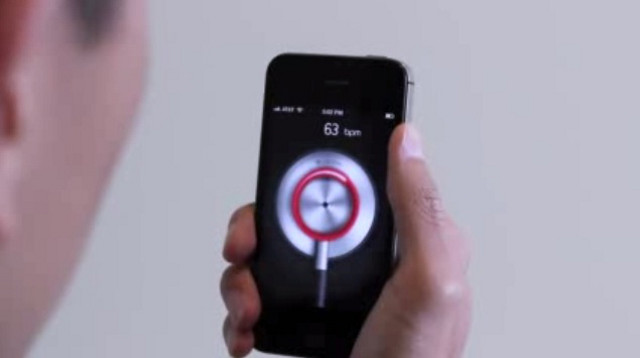SUMMARY
This is AI generated summarization, which may have errors. For context, always refer to the full article.
MANILA, Philippines – Here are the Life & Style stories you may have missed from the week of January 28 to February 2.
Porn on Vine app?
Vine, a video-sharing app for iPhone users that lets them post video through Twitter, was briefly involved in a porn scandal on Monday, January 28.
Adult content was flashed briefly in the “Editor’s Picks” section.
Twitter, which bought Vine in October 2012, apologized for the mistake saying it was the product of “human error” but revealed no other details. They also quickly removed the video.
READ: Entertainment wRap: Porn, Oscars, Hitler
After a free Vine application became available worldwide at Apple’s App Store, reports soon surfaced of “salacious” videos being found at Vine by users searching for such content.
Soon after, Facebook blocked Vine users from being able to find friends through its site. In a blog post, Facebook platform operations director Justin Osofsky said that they won’t allow apps to use their friend-finding feature if they “replicate our functionality or bootstrap their growth in a way that creates little value for people on Facebook.”
But Osofsky did not directly refer to Vine or how the rule was applied to the service.
Many health apps, few users

Despite the plethora of health apps now available to US smartphone users, a study shows that only a small number of people are using them.
The study, conducted by Pew Research Center, found that only 7% of the people surveyed used a smartphone app to track health indicators like diet, weight, exercise routines or to monitor diseases like diabetes.
“It is surprising,” says lead researcher Susannah Fox. “We’ve been looking at health apps since 2010, and health app uptake has been essentially flat for 3 years.”
The findings indicate that although there are hundreds of new apps for managing weight, blood pressure, pregnancy, diabetes, blood sugar, and medication, users are slow to catch up.
READ: Want to get fit? Use these apps
But the research, backed up by other studies, suggests a reason to hope that, someday, these apps might become more popular: more and more people are seeing the value of tracking their health.
“People are reporting that tracking as an activity is having an impact,” says Fox.
“But I can’t make a judgment on whether it’s better to use paper and pencil or an app.”
They found that 19% of smartphone users have downloaded an app related to health. Of these, 38% use it to track their exercise, 31% to monitor their diet, and 12% to manage their weight.
Erectile dysfunction linked to heart problems

If you experience erectile dysfunction, you may have bigger problems than your performance in bed. A study has found that erectile dysfunction may be a symptom of heart disease and early death.
The study followed 95,000 men aged 45 and older for two to 3 years. The men answered a survey on their health and lifestyle. Researchers also recorded the number of hospital stays or deaths in the group.
Over the study period, there were 7,855 hospitalizations for cardiovascular disease and 2,304 deaths.
“The risks of future heart disease and premature death increased steadily with severity of erectile dysfunction” whether or not there was a history of cardiovascular disease, study director Emily Banks said.
READ: Herbal sex pills dangerous – Pfizer
The study suggested that erectile dysfunction is more likely a symptom or warning sign for heart disease, rather than a cause. It could potentially serve as a useful marker to help doctors predict the risk of cardiovascular problems.
Rob Grenfell, Cardiovascular Health director at Australia’s Heart Foundation, says, “These results tell us that every man who is suffering from any degree of erectile dysfunction should be seeking medical assistance as early as possible and also insisting on a heart health check by their GP at the same time.”
Husbands who do more housework get less sex?

Husbands, before you hang your apron, read on.
A study found that husbands who spend more time doing traditionally female chores like cooking, cleaning, and shopping reported having less sex than husbands who do more masculine tasks like paying the bills, yard work, and auto maintenance.
The study “Egalitarianism, Housework, and Sexual Frequency in Marriage” looked at straight married couples in the United States. Men in the study reported having sex an average of 5.2 times a month before the survey, while women reported 5.6.
But both men and women in couples with a more traditional gender-based division of household chores said they had more sex.
READ: [Family] House tatay or house tambay?
Sabino Kornrich, lead author of the study, said, “The results suggest the existence of a gendered set of sexual scripts, in which the traditional performance and display of gender is important for creation of sexual desire and performance of sexual activity.”
But before husbands use this study to justify not taking on household chores, the study’s authors emphasize that “men who refuse to help around the house could increase conflict in their marriage and lower their wives’ marital satisfaction.”
Kornrich adds, “Earlier research has found that women’s marital satisfaction is indeed linked to men’s participation in overall household labor.”
No meat, less health problems
Vegetarians can now wave their flag.
A British study found that a vegetarian diet can reduce risk of heart disease by as much as 32%.
The study, called European Prospective Investigation into Cancer and Nutrition, is the largest in Britain, following 44,500 volunteers for about 11 years on average.
Among the volunteers aged 50 to 70, 6.8% of people who ate meat or fish were hospitalized or died from heart disease. This could be said of only 4.6% of the vegetarians.
READ: Choose your food, save the planet
Lead researcher Francesca Crowe attributes this to vegetarians’ lower cholesterol and blood pressure. A third of volunteers for the study were vegetarians.
Heart disease is the number one cause of death in developed countries. Around 65,000 die from it each year in Britain alone.
Crowe says, “These results show that diet is important for the prevention of heart disease.”
Aside from observing cardiac problems, the study also showed that the vegetarian volunteers typically had a lower weight-to-height ratio and a reduced risk of developing diabetes. – With reports by Pia Ranada/Rappler.com
Add a comment
How does this make you feel?

There are no comments yet. Add your comment to start the conversation.